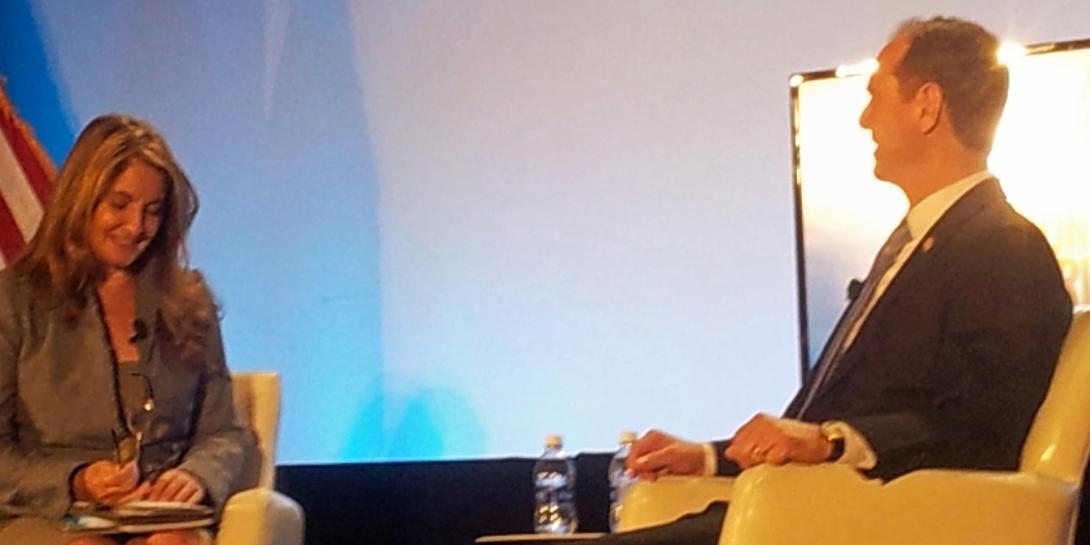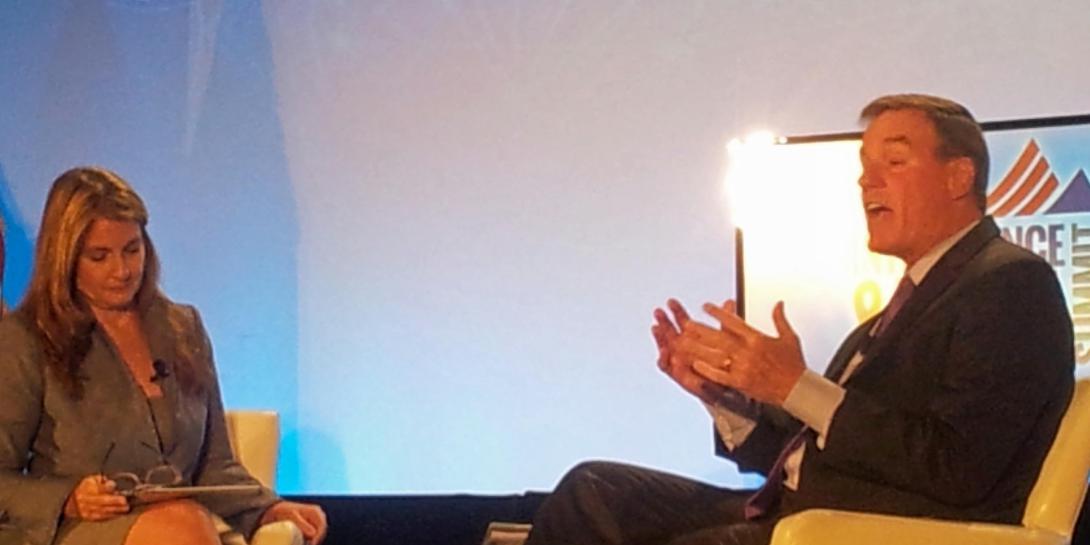States Affected by Election Hacking Don't Know What the Feds Know
The U.S. federal government has not yet told state-level election officials whether their election systems were hacked by the Russians.
@RepAdamSchiff States still do not know if their voting machines were hacked by Russia. We have not shared that info.#Intelligence2017
— George Seffers (@gseffers) September 7, 2017
Rep. Adam Schiff (D-CA) told the audience at the Intelligence and National Security Summit in Washington, D.C., that the information on which states were hacked has yet to be shared. “The states still don’t know if they were victims of Russian hacking. We have not shared that information with the states. I think that’s crazy,” Schiff said.
In a follow-up presentation, Sen. Mark Warner (D-VA) said the lack of security clearances is the main obstacle to sharing information with the states. “It drives me crazy that we have 21 states that were brought into it, and we have yet to come up with a response we can share with the top election officials because they don’t have the appropriate clearances,” Warner said.
Congress is exploring the possibility of overhauling and streamlining the security clearance process, which can take up to two years. Warner said the lawmaking body also is examining an ongoing, “risk-based” process for maintaining a clearance, rather than the current every-five-years approach.
@MarkWarner touts need for uniformity across clearance processes, using models from private sector#Intelligence2017
— George Seffers (@gseffers) September 7, 2017
While Schiff lauded the passage of cyber information sharing legislation, he pointed out that critical infrastructure protection was not a part of the package. “The big area that fell out of the cyber information sharing bill was the effort to deal with critical infrastructure. That was one area where there was simply too wide a gulf between the parties as far as the government’s role in protecting critical infrastructure,” Schiff said.
The California representative also voiced concern the country still is not adequately protecting voting machines and other election-related systems. “I’ve felt for some time that any state or any jurisdiction that doesn’t maintain a [voting] paper trail is negligent in this day and age,” he said.
Schiff assigned some responsibility to voting machine providers, states and the federal government. “The vendors of these machines need to be much more transparent with the government about their systems and their software so that we can analyze vulnerabilities,” he suggested. “States have to be willing to accept the government help that is being offered, and the government and the intelligence community still have to be more transparent with the states.
The congressman described cyber as “a particularly inviting field for adversaries” because “there’s always going to be plausible deniability,” he said. The United States has “gotten very good at attribution,” he added, but “our adversaries know we’re never going to make public our full capability to attribute, and so they’ll always have some level of deniability.”
Schiff voiced concern election hacking will spread. “What has been unleashed is not going to be put back in the bottle. It’s not going to be just an issue with Russia. It will be an issue with any country that wants to influence our affairs; moreover, it will be an issue with lots of countries in their relationships with each other,” he predicted. “There is no software patch for what happened last year. There’s no cyber defense capable enough. If the Russians want to get into the Democratic National Committee in 2020, they’ll get in. If they want to get into the Republican National Committee, they will get in.”
@RepAdamSchiff Says no putting genie back in bottle, will not be just Russia but any country wanting to affect elections#Intelligence2017
— George Seffers (@gseffers) September 7, 2017
Still, just because vulnerabilities exist, it doesn’t mean things are not getting done, Schiff added. “What it does mean is that this is a very asymmetric field where the advantages are all on the offensive [side]. Those on offense only need to find one open door and those on defense have to bar every window and lock every door,” he said.
In the end, developing a consensus might be the nation’s best defense, he added. “Really, the best protection we can have is forging the consensus we didn’t have last year that no matter who they help or who they hurt, if any foreign power intervenes in our affairs, meddle in our elections, they will be repudiated. And anyone who tries to take advantage of it will be repudiated,” Schiff said.






Comments